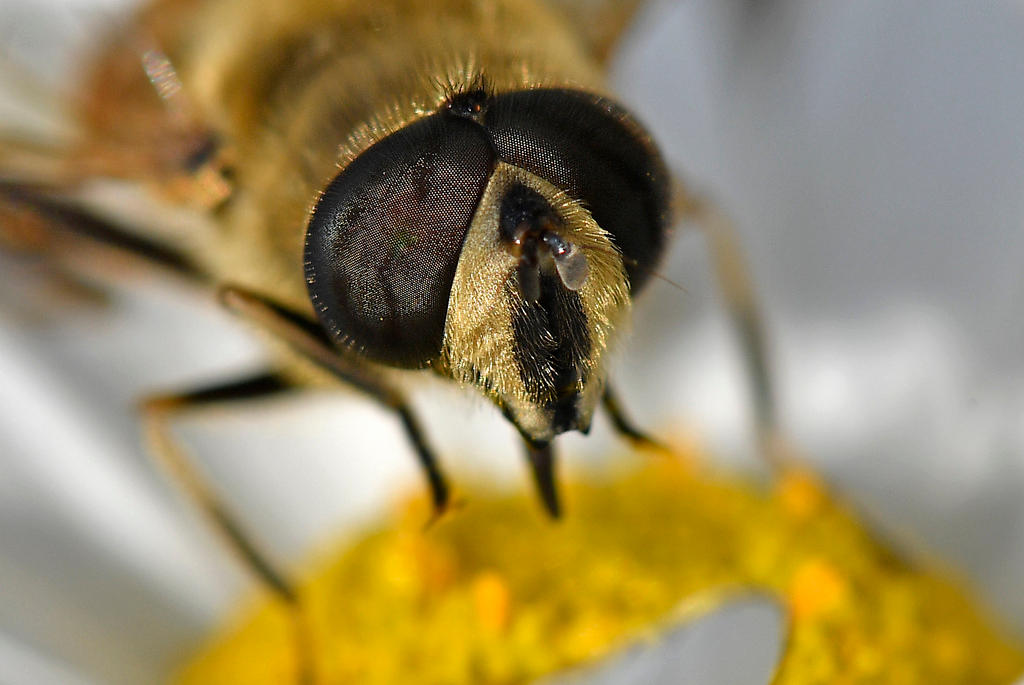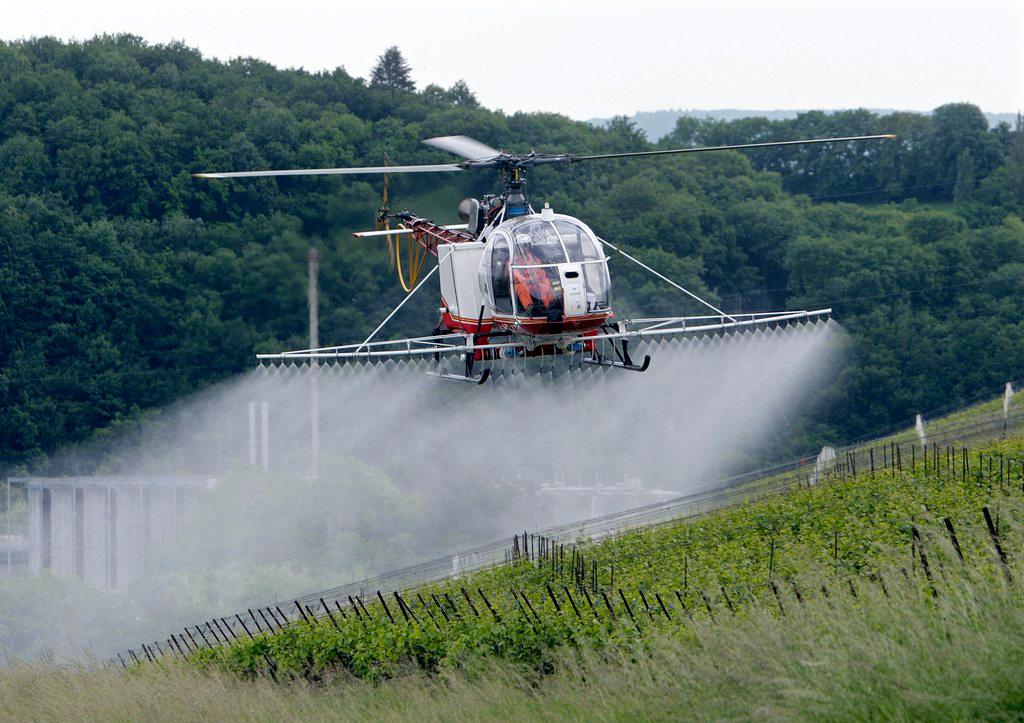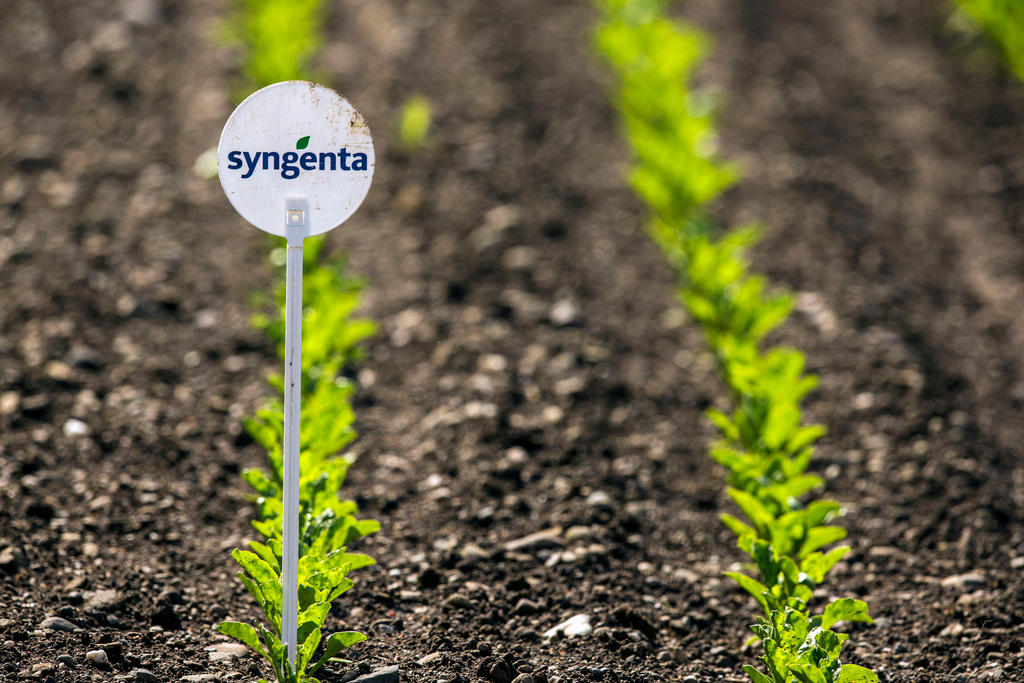The agriculture chief sowing Swiss expertise in China

From his headquarters in Basel, the agri-tech chief executive discusses bees, pesticides and takeovers with Clive Cookson.
Bees brought me to Basel. Erik Fyrwald, chief executive of Syngenta, the Swiss agricultural group, wanted to challenge recent negative coverage of neonicotinoid pesticides in the media, including the Financial Times. These “neonics”, manufactured by his company and others, protect crops from harmful insects but studies cited by environmental campaigners show that they also kill bees and other pollinators.
So Mr Fyrwald invited me to his corporate headquarters, a sober sandstone building opposite Basel train station, to argue the case for neonics. “We feel very strongly about bee health,” he insists.
Regulatory scrutiny of these chemicals has increased recently. The EU restricted the use of some neonics in 2013, saying they were “harmful to Europe’s honeybee population”.
However, Mr Fyrwald insists: “There’s plenty of data suggesting that neonicotinoids are not having any significant impact on bee health.”
The European Commission is due to decide this autumn whether to impose a more extensive ban on neonics.
Better seeds
In his functional executive meeting room – no pictures on the walls – our talk turned to genetically modified crops and Syngenta’s takeover by ChemChina, which is part of a current wave of global agribusiness mergers.
Mr Fyrwald joined Syngenta in 2016, after many years in senior management with US-based chemical companies, most recently as chief executive of Univar, a global chemicals distributor. The $44 billion (CHF42 billion) Chinese deal had been signed but not yet received regulatory approval. Now it is in the final straight, with ChemChina holding more than 98 per cent of Syngenta shares and completion expected before the end of 2017.

More
Financial Times
External link“I’ve been doing business in China since 1990,” says the 58-year-old American of Norwegian ancestry, who started out as a chemical engineer. “I went for the first time 27 years ago…I’ve seen the country develop over a long period.” The state-owned company is keen to transfer Syngenta technology to China to improve farm productivity there.
Syngenta will remain an independent subsidiary, with two ChemChina representatives on the eight-member Syngenta board. The overall strategy, says Mr Fyrwald, is for Syngenta to retain global leadership in crop protection products such as pesticides, fungicides and herbicides. The ambition is “to turn around our distant number-three position in seeds, which has actually been declining for some years”, he says.
The proposed Bayer-Monsanto and DuPont-Dow combinations are the leaders in seeds, where the commercial value lies mainly in improvement through GM. To compete more effectively, Syngenta is planning to acquire seeds companies, Mr Fyrwald says: “[The deals] haven’t been made yet but we’re in discussions.”
The takeover will benefit both Syngenta and Chinese agriculture, he insists. “It gives China ‘skin in the game’ – in both seeds and crop protection – that they haven’t had before. They did it for two main reasons. One is to help assure food quantity, safety and quality for the Chinese people.”
The second reason, Mr Fyrwald says, is to improve the environment in China, where farmers apply excessive amounts of toxic old pesticides and use water inefficiently. Technology from Syngenta will give them access to “more modern pesticides and crop protection products, better seeds, better genetics and in coming years biotechnology”. In China, where decades of rampant industrialisation has resulted in polluted soils and waterways, public pressure to clean up the countryside is growing.

More
Bern study helps explain duds in bee sperm
“China has been very slow to approve GM products for many years,” he concedes, but there are signs of change. Recently the Chinese government approved imports of some GM crop varieties and Mr Fyrwald expects approvals for cultivation in China to follow. The prospect for growing genetically modified organisms (GMOs) in Syngenta’s home continent are bleaker. “In Europe we are unlikely to see GM crops for many years to come,” he says, because the opposition from consumers and environmental groups is so intense.
“We’re not pushing GMOs. It is not our priority to spend money and effort to try to convince European consumers to encourage their politicians to start accepting GMOs,” Mr Fyrwald adds. “We’re better off providing GM technology in countries that want it.”
Integrated crop protection
In Europe Mr Fyrwald has another priority: “A bigger challenge than GMOs that European farmers face is if they systematically lose access to crop protection products that are proven safe, that pass any science-based regulatory process, but are taken off the market for political reasons.”
Which brings us back to bees. “Agriculture wouldn’t exist without healthy pollinators,” Mr Fyrwald says. “I believe that a group of scientists, looking objectively at the evidence, will find that neonicotinoids are an effective use of modern technology for sustainable agriculture, including bee health.”
He marshals several arguments. One is simply that the recent neonic field studies, taken as a whole, do not show a harmful impact. And insists that we should look at neonics as part of an integrated crop protection system. A study commissioned by Syngenta and Bayer found that the EU’S moratorium on neonics, is costing growers of oil seed rape (who are most dependent on these pesticides) €900 million (CHF1.03 billion) a year through reduced crop quantity and quality.
This is not solely about profit, he says. “If you take away the best crop protection technologies, the newer technologies, farmers won’t be competitive and they’ll use a larger volume of pesticide,” he says. “That is a problem for me living in Europe now, as a citizen, as a scientist and as a business person.”
Second opinion: the competitor
Andrew Liveris, chief executive of Dow Chemical, describes Erik Fyrwald as “an industry veteran” with a vast array of experiences – from private equity to a public company and now a state-owned enterprise.
In these roles, Mr Fyrwald has applied his high “intellectual and emotional intelligence” and proved himself to be extremely flexible, says Mr Liveris. That has meant that the Syngenta CEO “can adapt his approach and style to suit the situation”.
Copyright The Financial Times Limited 2017

In compliance with the JTI standards
More: SWI swissinfo.ch certified by the Journalism Trust Initiative











You can find an overview of ongoing debates with our journalists here . Please join us!
If you want to start a conversation about a topic raised in this article or want to report factual errors, email us at english@swissinfo.ch.